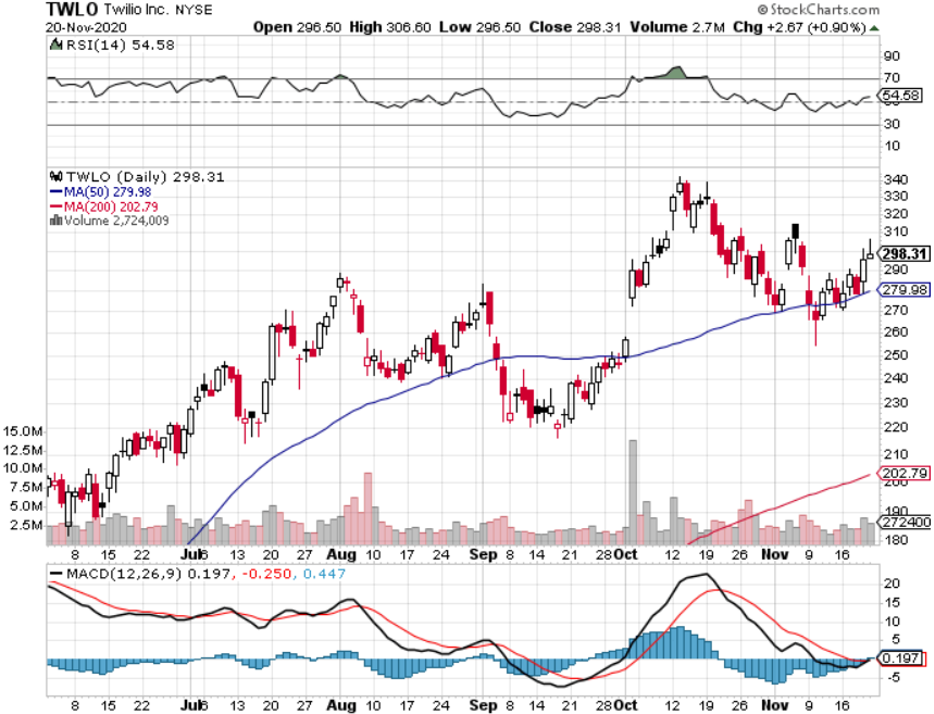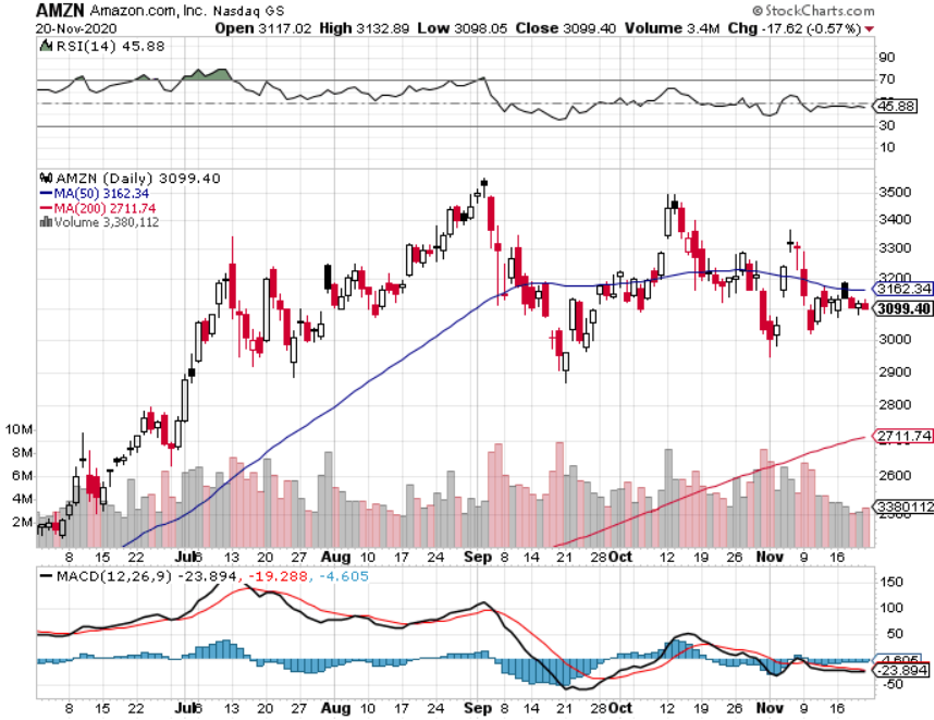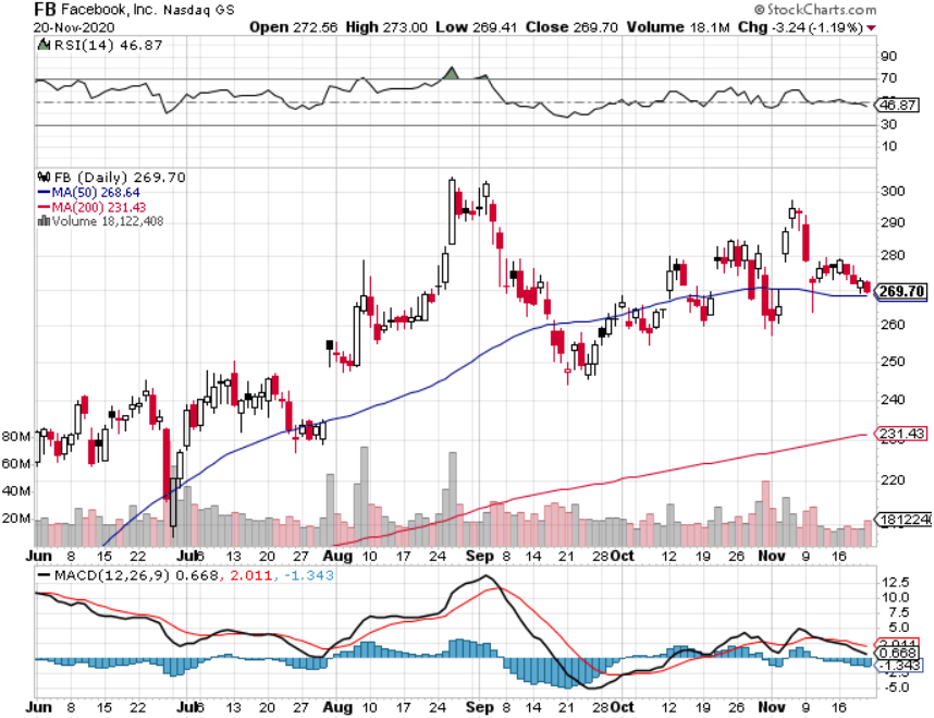Communications Has Never Been More Important
Growth is not dead as last week’s tech rally shows that tech stocks still have their allure.
One tech growth stock that I am absolutely in-love with is communications-as-a-platform cloud stock Twilio who services Airbnb and Uber as the software that connects the users to their staff.
The ability to communicate with customers in real time has never been more urgent in a fast-paced world, especially in the software-centric economy.
From food delivery to booking hotels, from customer service to password resets, literally anything revolves around the ability to connect reliably and rapidly.
Many people in 2020 still do not even know what Twilio (TWLO) does!
They are the dark horse cloud company that nobody has heard of.
The company provides the software building blocks that lets developers embed Twilio's communication technology in their apps, messaging systems, emails, and more. It also streamlines the process so it can be accomplished in a matter of hours, rather than weeks or months.
Here’s an insanely applicable example: The update you received from Lyft regarding your ride, the text messages and reservation confirmation you got from Airbnb, the customer service interactions with Disney's Hulu, and the booking confirmation from your restaurant via Yelp? These were delivered by Twilio's technology.
In pandemic third quarter, Twilio's revenue climbed 52% year over year, while also avoiding a loss, swinging from a loss in the prior-year quarter.
The company reported 208,000 active customers, up 24% year over year.
There is no mistake that these types of cloud stocks are in the vein of Twitter (TWTR), Salesforce (CRM), Square (SQ), and so on and at the vanguard of the hullabaloo of growth stocks.
Why are growth stocks so popular?
Growth stocks are companies that increase their revenue and earnings faster than average.
A growth company relentlessly develops an innovative product or service or at the top of the pack of fastest-growing industries and unsurprisingly that is technology, and that fact won’t change for generations.
Firms growing faster than average for long periods tend to be rewarded by the market, and this is why there has been a massive migration to growth stocks that has enriched shareholders of Apple (APPL), Facebook (FB), Netflix (NFLX), and so on.
Growth also begets additional growth and the faster they grow, the bigger the returns can be.
They are also more expensive than the average stock in terms of metrics like price-to-earnings, price-to-sales, and price-to-free-cash-flow ratios, but investors look past this in an age of expanding liquidity which is the catalyst that breathes even more momentum into these stocks.
US growth stocks secure a premium just for the possibility they will fulfill their parabolic growth potential.
Capitalizing on powerful long-term trends can grow their sales and profits for many years, and the following are a list of seminal trends that all involve technology data points as the secret sauce.
- E-commerce: The massive migration to online shopping is here to stay and the coronavirus has acted like a supercharger to e-commerce company like Amazon (AMZN), Overstock (OSTK), and Wayfair (W).
- Digital advertising: The digital ad market is moving marketing budgets from TV and print to online channels.
- Digital payments: Contactless payments and fintech (through a smartphone) will eventually replace physical card transactions.
- Cloud computing: Computing power is migrating from on-premise data centers to cloud-based servers. Amazon’s (AMZN) and Alibaba’s (BABA) cloud infrastructure services help make this possible, while Salesforce.com (CRM) provides some of the best cloud-based software available.
- Cord-cutting and streaming entertainment: Millions of people are only paying for internet services that offer on-demand content and provide access to premium packages. This trend has been supercharged by the Millennial generation.
These powerful trends will last decades giving you plenty of time to claim your share of the profits they create.
Rank growth companies with strong competitive advantages. Otherwise, their business might fail.
Some competitive advantages are:
- Network effects: Facebook is a valid example that built its usership by offering other assets like WhatsApp and Instagram to snowball into a 2 billion number usership. The synergies are plentiful with the ability to cross-sell its products across platforms and aggregating data to deploy the intel in the best way it can make money.
- Scale advantages: Size can be another powerful advantage. Amazon is a great example here, as its massive global fulfillment network is something its smaller rivals will find extremely difficult to replicate.
- High switching costs: Switching costs are expenses and difficulties involved in switching to a rival product or service. Once a company begins to use e-commerce company Shopify as the core of its online operations, they are unlikely to absorb the burden of switching to another competitor.
Pinpointing large addressable markets means a larger opportunity to secure higher revenue and Twilio is occupying a spot at the intersection of generational, long-term trends and almost unfair competitive advantages.
The underlying shares have rocketed this year as communications has never been more important. This is a great buy and hold stock for the long term because trading short term is difficult with its elevated volatility.




